6 amazing reasons to get your beauty sleep
Better mood, more beautiful skin, and four other reasons you should make sleep a priority.
Updated on October 25, 2022
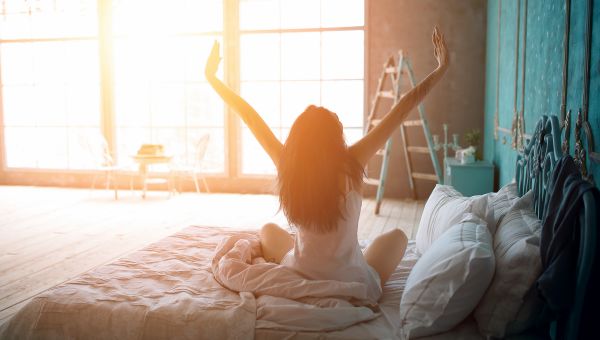
Do you get enough “beauty sleep”? It can mean a lot when it comes to your overall health. When people take care of themselves and sleep well, they tend to be happier, younger-looking, and more alert says pulmonologist and sleep specialist Dawn Stanley Cohen, MD, of Sky Ridge Medical Center in Lone Tree, Colorado.
“When you’re not sleeping, you’re crabby and have frown lines; you don’t have a glow,” says Dr. Cohen. Most adults need seven to nine hours of sleep every night, but more important than the number is getting enough sleep to feel rested and restored when you wake up.
Here are six reasons why it’s important to get your “beauty sleep.”
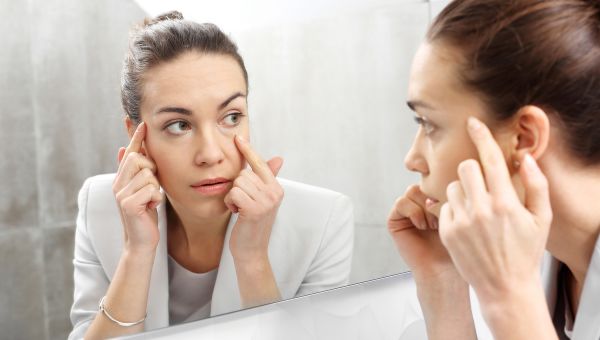
Sleep reduces swelling and inflammation
You’re not just imagining that under eye puffiness after a restless night. If you’re skimping on sleep, you may notice more inflammation. “When you get enough rest, your body has time to decrease inflammation and get rid of all the excess water that we carry under our eyes and in our legs,” Cohen says. Lack of sleep can also cause your body to produce more of the stress hormone cortisol. Increased cortisol levels lead to more inflammation too, Cohen adds.
Those with underlying skin conditions like psoriasis and eczema should be especially mindful of their sleep habits since inadequate sleep may raise the risk of flare-ups.

Catching more ZZZs slows down the skin's aging process
Sleep allows your skin to repair itself. “Collagen is produced during sleep, and collagen is what prevents us from getting wrinkles. If we're not getting proper sleep, then we're going to have increased wrinkles and age more quickly,” says Cohen. When you’re sleeping, collagen, the fibrous protein that gives structure to the skin, helps new skin cells grow and assists in getting rid of the dead ones. Collagen also helps hold your skin together and prevents sagging and wrinkles.

Adequate sleep lowers anxiety levels and boosts your mood
Poor sleep leads to anxiety in both women and men, says Cohen. “We know that if we can get patients that suffer from anxiety or depression to sleep well, it’s easier to control those disorders,” says Cohen.
It’s no surprise that people who don’t sleep may be crabbier, too. “If you’ve ever pulled an all-nighter, you probably noticed you’re a little short tempered the next day,” says Cohen. When you lose sleep, you may appear more upset or angry in response to certain events because you’re irritable and less patient.
In a 2019 study published in JMIR Mental Health, researchers recruited 208 adults to test the relationship between sleep quality and mood. They found that sleep quality (which was self-reported by participants) had a significant effect on next-day mood, even after taking into account other mood-influencing factors like physical activity, weather, and day of the week.
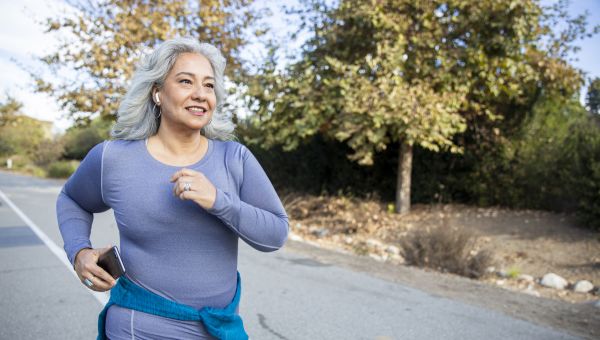
Hitting the hay can help you maintain a healthy weight
Good sleep habits can actually help you slim down. In a 2022 study published in JAMA Internal Medicine, 80 adults who were overweight were split into two sleep groups. The control group continued their regular sleep schedule (less than 6.5 hours per night on average) while the other group received individualized sleep sessions aimed at extending their sleep duration to 8.5 hours per night. The researchers found that participants in the sleep extension group consumed on average 270 fewer calories per day compared to those in the control group.
A 2017 study published in PLoS One analyzed 1,615 British adults between the ages of 19 and 65 who were surveyed about their sleep patterns and diet, and who had their weight, waist circumference, blood pressure, cholesterol, blood sugar, and thyroid function measured by researchers. Researchers found that as sleep duration went up, waistline size and body mass index went down.
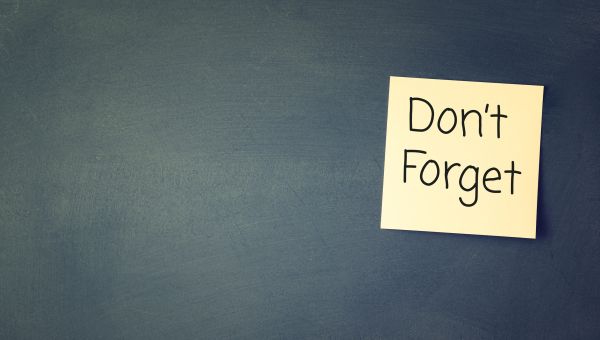
A successful night of sleep can boost your memory
Adequate sleep may consolidate your memory. “When you’re sleeping, your brain has time to sort things out. People who don’t sleep well have a very difficult time with memory and concentration,” says Cohen. A good night’s sleep allows the brain to solidify memories and strengthen the connection between brain cells.

It promotes good behavior and lessens bad habits
When you’re sleep deprived, there’s a higher chance you’ll regress to bad habits. “When we’re tired, we do things to try and keep us up like snacking or smoking,” says Cohen.
And tired adolescents can especially pick up poor routines without a good night’s sleep. “Some studies in adolescents say that kids who aren't getting good quality sleep are more likely to use drugs or alcohol,” says Cohen. Kids in high school and college may see poorer grades and behavioral problems secondary to attention and memory deficits from sleep deprivation.
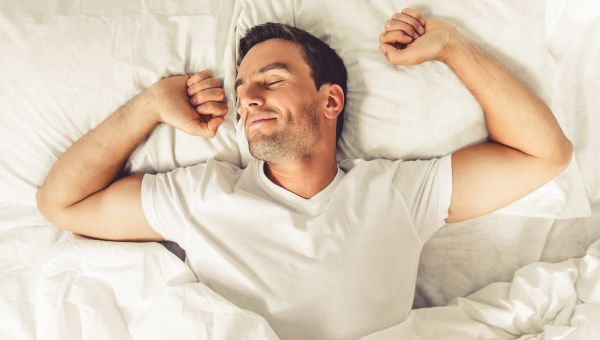
7 ways to get a good night’s rest
Cohen says it’s impossible to catch up on beauty rest, but it’s important to get back on track as soon as you can. “To establish a regular bedtime and wake time, you have to make sleep a priority,” she adds. Here are some ways you can:
- Avoid caffeine consumption later in the day
- Avoid large meals at night
- Limit naps during the day
- Avoid screens in the hour before bed
- Exercise regularly, since getting physical activity during the day can make it easier to fall asleep at night
- Stick to a wake and sleep schedule, even on the weekends
- Keep your bedroom cool, dark, and quiet
- Try these additional tricks to fall asleep even faster.
If you’re having trouble falling asleep, or feel like you aren’t getting enough sleep, see a sleep specialist to find out what you can do.

The mind, body and sleep relationship. National Psoriasis Foundation. Published January 18, 2021.
Sleep and eczema. National Eczema Society. Published December 2020.
Halioua B, Chelli C, et al. Sleep Disorders and Psoriasis: An Update. Acta Derm Venereol. 2022 Apr 27;102:adv00699.
Dzierzewski JM, Donovan EK, Kay DB, Sannes TS, Bradbrook KE. Sleep inconsistency and markers of inflammation. Front Neurol. 2020 Sep 16;11:1042.
Collagen. Harvard T.H. Chan School of Public Health. Accessed on October 2, 2022.
Triantafillou S, Saeb S, Lattie EG, Mohr DC, Kording KP. Relationship between sleep quality and mood: Ecological momentary assessment study. JMIR Ment Health. 2019 Mar 27;6(3):e12613.
Tasali E, Wroblewski K, et al. Effect of sleep extension on objectively assessed energy intake among adults with overweight in real-life settings: A randomized clinical trial. JAMA Intern Med. 2022 Apr 1;182(4):365-374.
Potter GDM, Cade JE, Hardie LJ. Longer sleep is associated with lower BMI and favorable metabolic profiles in UK adults: Findings from the National Diet and Nutrition Survey. PLoS One. 2017 Jul 27;12(7):e0182195.
Mason GM, Spencer RM. Sleep and memory in infancy and childhood. Annual Review of Developmental Psychology.
Tips for beating anxiety to get a better night’s sleep. Harvard Health. Published October 13, 2020.
Chattu VK, Manzar MD, et al. The Global Problem of Insufficient Sleep and Its Serious Public Health Implications. Healthcare (Basel). 2018 Dec 20;7(1):1.
Perry GS, Patil SP, Presley-Cantrell LR. Raising Awareness of Sleep as a Healthy Behavior. Prev Chronic Dis 2013;10:130081.
More On


video
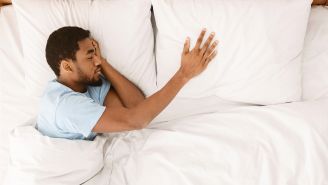
article
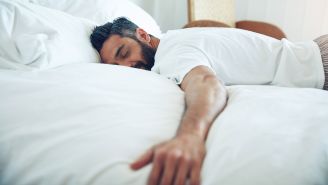
slideshow


video


video
